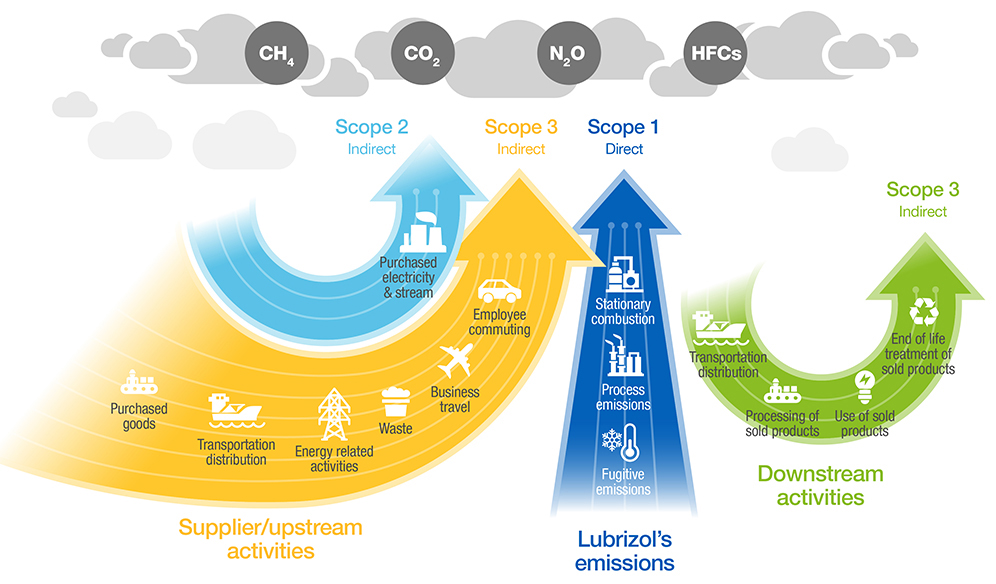Feb 17, 2023
Posted by Colin Morton, Senior Director, Consumer Lubricants, Dave Duncan, Global Director of Technology
What role do base oils play in formulating sustainable lubricants? And how might lubricant makers and base oil suppliers approach the issue? We recently sat down to discuss key considerations for assessing base oil sustainability profiles and evaluating impact.
First, what is sustainable lubrication?
Colin: We view sustainability as a lens through which we filter our business decisions, including how we innovate, design and produce products how we collaborate internally and with our customers, suppliers and partners and how we support and invest in our local communities.
How we define the sustainability of a lubricant depends on many things, including the raw materials used to produce our additives and finished lubricants, how and where they’re used and on through the end of a product’s life.
Dave: In addition, on the lubrication side, we don’t look at sustainability in a vacuum. Rather, we take a holistic approach to every application because they’re all unique. For example, what constitutes sustainability in a passenger car engine oil can be very different than sustainability in another application, such as an open gear lubricant in an industrial setting.
So lubricant sustainability really depends on factors unique to each application. And that’s a good thing because careful examination of each situation often reveals previously unnoticed opportunities for improvement.
What’s driving demand for more sustainable lubricants?
Dave: Specific to the transportation segment, there are several drivers, but a few stand out. For instance, public discussion about climate change has intensified. We’ve also seen increasingly stringent emissions requirements from regulatory bodies.
OEMs have kept pace with the changes over the years through continuous innovation, including the introduction of smaller, more efficient combustion engines and various aftertreatment devices that help reduce emissions. And, as you might expect, lubricant chemistry has evolved to enable the hardware.
But the lubrication industry has reached a tipping point. We can’t downsize engines and reduce viscosity levels forever. Instead, we need to start looking at what else we can do to make meaningful impacts.
OEMs and their suppliers know this and are beginning to look in closer proximity at opportunity areas, lubrication being one of them.
What about the trend towards electrification? Won’t that mitigate the need?
Colin: There has indeed been a sizeable lift in electric vehicle sales over the last few years, especially in Europe. We are certainly active in developing various e-fluid technologies to enable a switch.
But the fact remains that internal combustion engine (ICE) vehicles still make up most of the global vehicle parc and are predicted to do so for the foreseeable future. It’s critical that we don’t overlook that fact and remain proactive in our efforts to address ICE vehicle needs.
So, what else can the industry do to make lubricants more sustainable?
Colin: The additives industry continually innovates to keep pace with regulatory and OEM requirements. Subsequently, lubricant technology has improved in its ability to support better performance and efficiency in the field.
But the reality is that additive and performance polymer chemistries only make up very small portions of finished lubricants. With that in mind, one way the industry could make lubricants more sustainable is by broadening its focus to include the materials that make up the bulk of finished fluids. Specifically, base oils.
How do base oils impact the sustainability of a lubricant?
Dave: A formulator’s base oil selection for a given lubricant formulation varies based on a range of factors, the application of the final product often being the primary consideration. For example, modern engine designs dictate allowable elemental levels to ensure efficient catalyst operation. Similarly, volatility restrictions lessen hydrocarbon emissions. Additionally, as I alluded to earlier, the trend towards lower-viscosity oils is driving market adoption of API Groups II, III, IV and V.
Those are all valid and important considerations. But they’re also heavily driven by in-use sustainability implications. In other words, the handprint or positive environmental impact that the finished products can make in the field.
There are other elements that contribute to how base oils impact overall lubricant sustainability, including the environmental impacts or carbon footprints of how and where selected base oils were produced, how and where they were shipped, and how and where they are discarded or reclaimed.
So, what should formulators do better to incorporate these factors into their sustainability considerations?
Colin: Firstly, formulators should establish what sustainability truly means to them in the context of their total operations. And those definitions should be representative of how they want to conduct their businesses from top to bottom.
For example, suppose an organization wants to understand better how raw materials such as base oils contribute to the overall sustainability profile of their finished products. In that case, they should emphasize factors such as how those base oils are produced and sourced. And they should prioritize asking their suppliers for sustainability-related inputs, including factors such as energy consumption and emissions output used in the manufacturing process.
With those inputs, organizations can conduct complete life cycle analyses—commonly referred to as LCAs—for more accurate representations of product sustainability. The benefit of such an approach is a cradle-to-grave view of a finished product’s sustainability profile that factors in the total carbon footprint of all material streams in the value chain, base oils included, along with the handprint of the product in use.
Energy consumption and emissions output are important footprint inputs. Do you have any suggestions for calculating hard figures?
Dave: Yes, there are multiple frameworks in use today that formulators and their suppliers can apply. But there is some nuance. And how they apply those frameworks does matter.
For example, the Greenhouse Gas Protocol (GHG) provides a comprehensive framework for understanding the various sources of emissions, organized into three categories: Scope 1, Scope 2 and Scope 3 emissions.
In this context, Scope 1 emissions account for an organization’s direct greenhouse gas emissions. These encompass emissions from sources owned or controlled by that organization. Scope 2 emissions are indirect greenhouse gas emissions, those associated with an organization’s purchase of energy, such as electricity, steam, heat or cooling. And, finally, Scope 3 emissions account for the result of activities from assets not owned or controlled by the reporting organization. These emissions indirectly impact an organization’s value chain.

We see many businesses place the greatest emphasis on their Scope 1 emissions. That makes some sense because Scope 1 emissions are mostly in their control. But we’d also advise businesses to consider Scope 2 and Scope 3 emissions to get a more accurate view of their entire value chain.
Taking this example, and to reiterate an earlier point, this is a critical reason for why it’s so important that formulators first define what sustainability means to them before setting off and doing the work. The fact is that no one can make effective decisions in a silo about what’s possible to measure and how to measure it without open dialogue. In other words, if you’re a formulator who’s serious about sustainability, it’s also important that you have suppliers who are just as committed and willing to have those conversations. Doing so will ensure the most accurate outcomes.
Any closing thoughts?
Colin: As the transportation sector continues looking at ways to lessen environmental impact, the lubricant industry, despite all the contributions made to date, still has much opportunity to innovate and transform. It will be absolutely key to work right across the value chain, to forge winning and successful partnerships, to enable a more sustainable future. Base oil manufacturers have a vitally important role to play in this journey. We look forward to creating the winning partnership choices and innovation for that more sustainable tomorrow.
Dave: On that note, I’ll just restate the value of collaboration in this industry. It’s evident based on what the collective has already achieved, but there's much to be gained from continued partnership.
(Article originally published in LUBE Magazine.)









